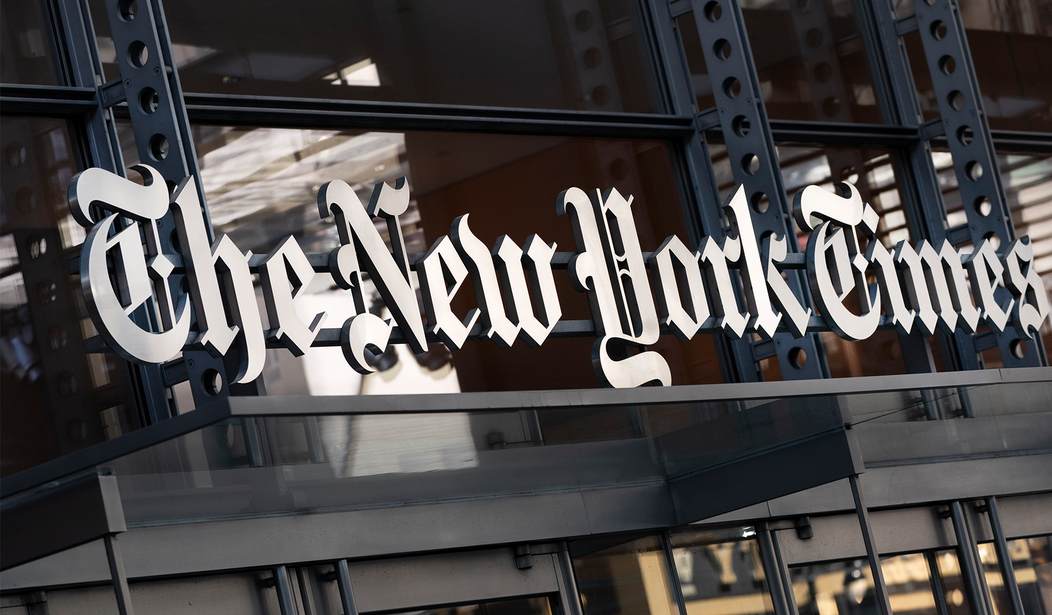Former New York Timers editorial page editor James Bennet appears to have been hit in the head by a two-by-four. He's been roused from his stupor and has discovered what the rest of us have known all along.
There is nothing "liberal" about the New York Times. From top to bottom, from the opinion page editors to the news section writers, to the business page, arts, and entertainment, and the advertising department, there is a pervasive, sickening, arrogant bias against not just the right, but most Americans who aren't radical-left elitists.
Bennet was fired in 2020 after the fallout from Senator Tom Cotton's editorial was published at the height of the Black Lives Matter riots in the summer of 2020. Cotton advocated that then-president Donald Trump deploy the National Guard to the cities to restore order.
Bennet, who claims he never read the editorial, defended it as part of the Times's mission to publish all points of view. But the rest of the staff and the entire left-wing commentariat went ballistic.
This week, he penned a massive 16,000-word essay for The Economist, explaining the process of publishing the Cotton op-ed from beginning to end.
What stands out for me is the hypocrisy of Dean Baquet, the executive editor of the New York Times, and publisher A.G. Sulzberger, who initially backed Bennet in publishing the Cotton op-ed. But when the backlash from Times' reporters and editors got intense, they backed off and piled on the criticism of Bennet.
This was an eye-opener for Bennet, who expected a vigorous debate. Instead, the criticism demonstrated closed-mindedness, an illiberal bias that he says made a mockery of the Times's goal to present all points of view.
“As preoccupied as it is with the question of why so many Americans have lost trust in it, the Times is failing to face up to one crucial reason: that it has lost faith in Americans, too,” Bennet writes. “The reality is that the Times is becoming the publication through which America’s progressive elite talks to itself about an America that does not really exist.” [author's emphasis]
The Times’s problem has metastasized from liberal bias to illiberal bias, from an inclination to favour one side of the national debate to an impulse to shut debate down altogether. All the empathy and humility in the world will not mean much against the pressures of intolerance and tribalism without an invaluable quality that Sulzberger did not emphasize: courage.
All of that is true. The question is what to do about it. Has the media gone so far around the bend that there's no way back to sanity? Bennet isn't hopeful, largely because the two sides approach reality and truth from entirely different directions.
It is hard to imagine a path back to saner American politics that does not traverse a common ground of shared fact. It is equally hard to imagine how America’s diversity can continue to be a source of strength, rather than become a fatal flaw, if Americans are afraid or unwilling to listen to each other. I suppose it is also pretty grandiose to think you might help fix all that. But that hope, to me, is what makes journalism worth doing.
"A journalism that starts out assuming it knows the answers can be far less valuable to the reader than a journalism that starts out with a humbling awareness that it knows nothing," Bennet writes. The 57-year-old journalist was probably the last generation of "old school" reporters who thought it important to keep bias out of the story as much as humanly possible.
That's not true today. A story with a "point of view" is what journalism is all about. I can't tell you how alien that concept is to those of my generation who grew up during a time when the New York Times and Washington Post were admired and respected for their efforts to keep bias out of their coverage of important events.
They weren't always successful. And there was always a regional bias that was hard to miss. New York and Washington stories weren't always news in the Midwest and South.
But perhaps the biggest takeaway from Bennet's piece is that someone as steeped in the business of news as Bennet is doesn't think there's a way back to sanity. As long as both sides create their own reality and follow their own "truths," the United States will be doomed to go down two separate paths, disunited and forever broken.










Join the conversation as a VIP Member